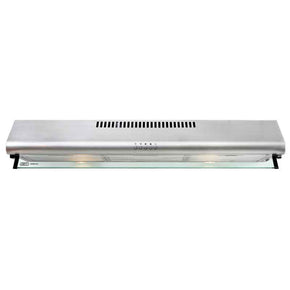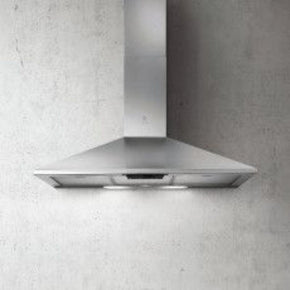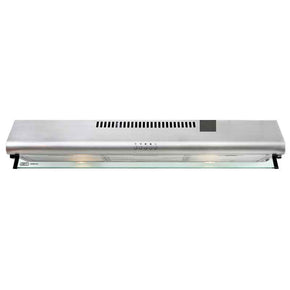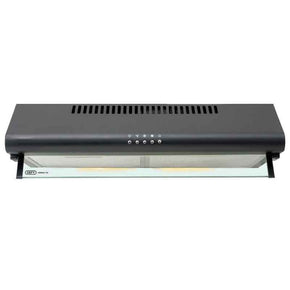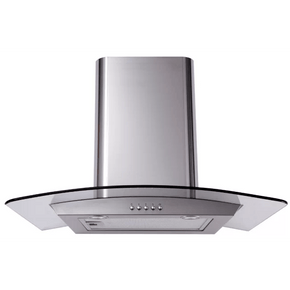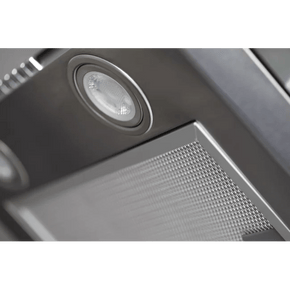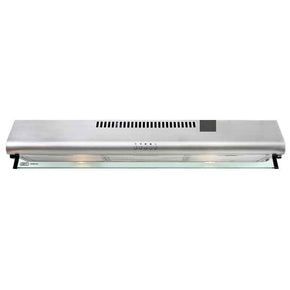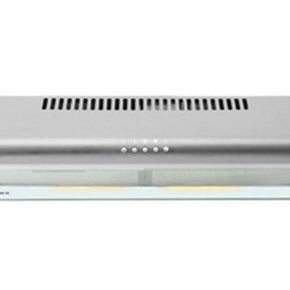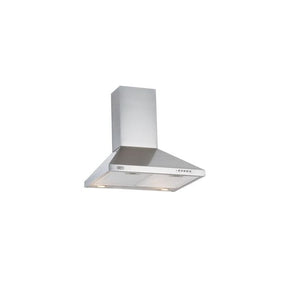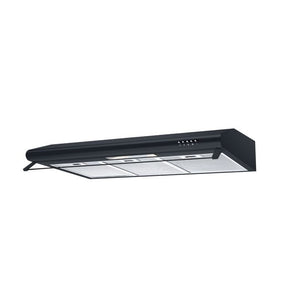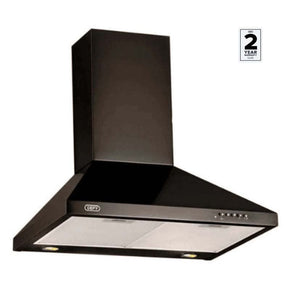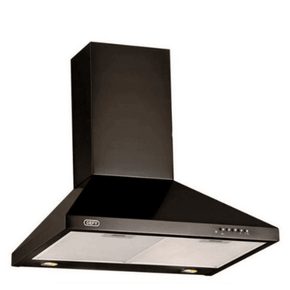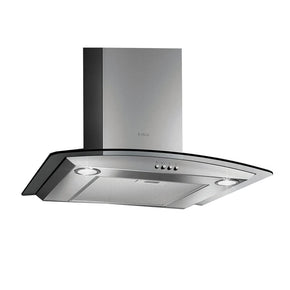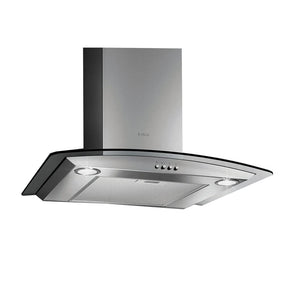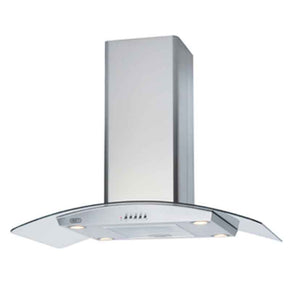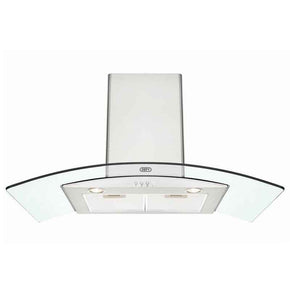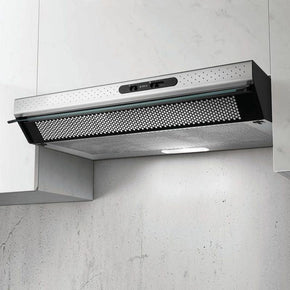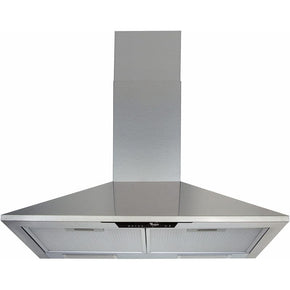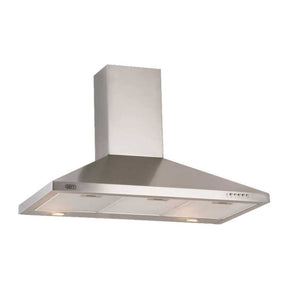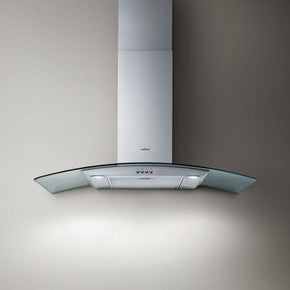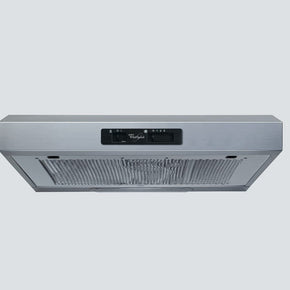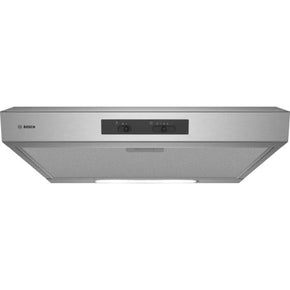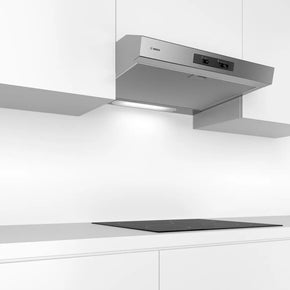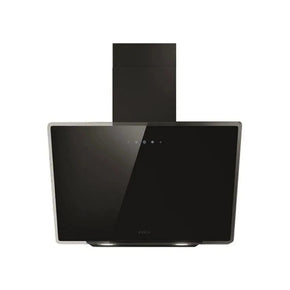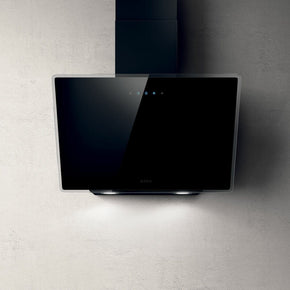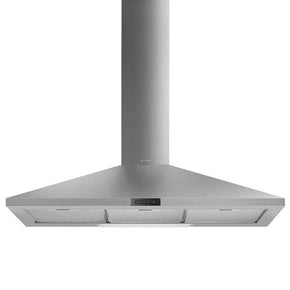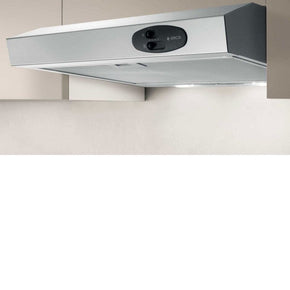- No products in the cart.
Browse Categories
-
Home Appliances
-
Small Appliances
- Audio Visuals
-
Bedlinen & Bathroom
- Decor
-
Dress Fabrics, Haberdashery & Sewing
-
Electronics & Cellphones
- Tech & Gaming
-
Kitchenware & Cleaning
-
Curtaining, Upholstery & Blinds
-
Furniture
- Catering Equipment
-
Fashion
-
Lighting & Hardware
- Solar Solutions
- Luggage & Bags
-
Camping & Outdoor
-
Baby & Toys
- Rugs & Flooring
- Stationery
- Clearance Sales Clearance Sales
- Sort by
- FILTER BY PRICE
-
-
Below $100.00
-
$100.00-199.00
-
$200.00-299.00
-
$300.00-399.00
-
$400.00-499.00
-
Above $500.00
-
- FILTER BY COLOR
-
-
- FILTER BY SIZE
-
-
S
-
M
-
L
-
XL
-
2XL
-
3XL
-
- FILTER BY BRAND
-
-
Adidas
-
Camel
-
Motorola
-
Rolex
-
Samsung Galaxy
-
Seiko
-
Sony
-
Defy 60cm SS Slimline Cooker Hood DCH291
Features:
Glass fume deflector
Aluminum filters
Twin hob lights
Single 3-speed fan
Power on a pilot light
Cosmetic match with hobs
Dimensions overall:
Width 60cm
Elba 90cm SS Pyramid Style Cookerhood 10/MISSY90/ Elica
Size Dimensions 90 cmFinish Stainless steelVersion Duct out / RecyclingControls 3S MECHANICAL PUSH BUTTONLighting Halo 2x29wMin-max airflow 250-500 m3/hMin-max noise level 46-60 db(A)Tot. absorption 160 W 220 WDuct size 120-150...
Defy 90cm SS Gemini Extractor DCH296
The Defy 90cm Flat Cooker hood adds massive value and functionality to any kitchen. This reliable unit is fitted with the latest technology to give your kitchen a superior air...
Defy 70cm Black Gemini Extractor DCH293
Product Info 2 Halogen lights 2 Aluminium filters Two 3-speed fans Push button controls Specifications:Dimensions Overall: Length (mm): 155 Width (mm): 700 Depth (mm): 500 Aperture(mm): Length: 490 Width: 268...
Univa 60cm Curved Glass Chimney Cookerhood Stainless Steel U600SCG
R 2,799.00
Chimney Cookerhood
Curved Glass
2 Lights
1 Removable aluminium filter
5 x Push-button control
Defy 700mm Stainless Steel Cook Hood DCH294
2 Halogen lights
2 Aluminum filters
2 x 3 speed fans
Push button controls
2 year warranty
Defy 60cm Slimline Chimney Extractor DCH311
R 3,799.00 The Defy 60cm Premium Chimney Cookerhood adds a touch of class and sophistication to any kitchen design. This impressive stainless steel unit is fitted with the latest technology to...
Falco 90cm Black Wall Extractor AR-90-903BL
R 1,799.00HOOD TYPE: Cookerhood VENTILATION: Re-circulated Air Operation MOTOR: Body in Plastic / Blades in Plastic CONTROL: Push Button FAN SPEED: 3 TYPE OF FILTERS: Aluminium x 2 / Carbon Filter Mat x 1 TYPE OF LAMPS: 1...
Defy 60cm Chimney Extractor Black DCH310
1 LED light
2 Aluminum filters
Optional carbon filters
Single 3-speed fan
Push-button controls
Superior extraction
Overall Dimensions (HxWxD) : 1040 x 600 x 480mm
24 Months warranty
Elica 60cm SS Curved Glass Extractor 10/CIRCUS60
60 CM CIRCUS Wall Mounted Cookerhood Product Information: Size Dimensions 60 cm Finish Stainless steel + glass Version Duct out / Recycling Controls 3S MECHANICAL PUSH BUTTON Lighting Halo 2x20w Min-max airflow 250-550 m3/h Min-max noise...
Defy 900mm Island Cooker Hood DCH323
R 8,499.00Stylish kitchen appliances don’t come much better than the Defy 900C Premium Curved Glass Island Cookerhood, the ultimate air filtration device for your island kitchen needs. Fitted with superior extraction...
Defy 900mm Glass Cooker Hood DCH321
R 5,299.00All Defy products are designed, not only for superior practical applications, but also to enhance the home’s aesthetic as well. With the kitchen forming the heart of any home, modern...
Ferre 60cm Black Glass Cooker Hood FHZ001
60cm Wall Mount Extractor
Slanted Black Glass
300m3 extraction Power
2 Lights
Warranty: 24 Months
Elica 60cm Stainless Steel Under Cabinet Cooker hood 10/ELISUMMER60
Size: 60 CM Finishes: Stainless steel Version: Recycling Control: S3s slider Lighting Halo: 28 W Max Airflow: 145 M3/H Max Noise Level: 65 DB(A) Total Absorption: 128 W Duct Size:...
WHIRLPOOL AKR672IX 60CM, WALL MOUNTED
R 3,999.00Whirlpool wall mounted cooker hood – AKR 672 IX This Whirlpool wall mounted Cooker Hood features: dishwasher-safe, washable aluminium grease filters. An outstanding cooker extractor fan, ensuring a fresh, grease-...
Defy 90cm Chimney Cooker hood DCH 306/314
R 3,999.00
Suction : 1000 m3/h
Filters : Anodized Aluminium Washable
Noise Level : 59 dbA (Max)
Type : Cooker Hoods Chimney
Elica 900mm Glass Cooker hood 10/CIRCUS90
Size Dimensions: 90 cm Finish: Stainless steel + glass Version: Duct out / Recycling Controls: 3S MECHANICAL PUSH BUTTON Lighting Halo: 2x20w Min-max airflow : 250-550 m3/h Min-max noise level...
Whirlpool wall mounted cooker hood - WSLK 65 AS X
R 2,199.00Description Technical Details• Net weight (kg): 5.6• Gross weight (kg): 6.8• Current (A): 0,6• Length of electrical supply cord (cm): 150• Connection rating (W): 143• Air flow indication m3/h: 208•...
Bosch 60 cm Series 2 Built-in Extractor Hood DHU635HZA
R 1,899.00Suitable for ducted or re-circulated extraction 3 speed operation Single motor Ducted extraction rate according to DIN/EN 61591: max. 330 m³/h Adjustable glass visor Removable metal grease filters, dishwasher safe...
Elica 60CM Wall Mounted Vertical Cooker Hood Black Glass 10/SHIRE60
R 5,499.00
Width: 60cm
Energy Class: B
Extraction Capacity: 713?³/?
Size: 60cm
Version; Duct Out
Finishes: Black Glass
Lighting: Led 2x1 - 4000k
Controls: 2s+b Touch Control
Smeg 90cm Stainless Steel Chimney Extractor KDE900EX
Components finishing: Stainless steel Serigraphy colour: Black Logo: Silk screen Controls Control setting: Buttons Programs / Functions No. of speeds: 3 Technical Features No. of lights: 2 Light type: LED...
Elica 90cm Stainless Steel Extractor KREA90
R 3,199.00
Stainless Steel
Motor 185 m³/h included
Energy Efficiency Class: E
Aluminium Grease Filter
Slider Controls
Charcoal Filter Included
Quality Extractors for Sale Online
Shop our range of extractors for sale at MHC World. Buy online and receive free delivery over R3500 & within a 30km radius from our store.
Apart from our extractors for sale, we also offer gas hobs, gas stoves and ovens.
What Is an Extractor?
An extractor is a device that removes moisture and odours from a room. It is typically used in kitchens and bathrooms to remove steam and cooking fumes. Extractors can also be used in other areas, such as laundry rooms and workshops.
How Does an Extractor Work?
An extractor works by using a fan to draw air from the room. The air is then passed through a filter, which removes the moisture and odours. The clean air is then expelled back into the room.
The Development of Extractors
The first extractors were invented in the early 1900s. These early extractors were simple devices that used a fan to draw air from the room. The air was then passed through a water-soaked cloth to remove moisture.
In the 1950s, extractors became more sophisticated and used a motor to power the fan, and they had more powerful filters. This made them more effective at removing moisture and odours.
In the 1970s, extractors became more popular due to the increasing popularity of cooking at home. Extractors helped to remove cooking fumes and odours, which made kitchens more pleasant to cook in.
Today, extractors are an essential part of many kitchens. They help to remove moisture and odours, which can help to prevent mould and mildew growth. They can also help to improve the air quality in the kitchen.
Benefits of Extractors
There are many benefits to using an extractor, like the following:
· Removes moisture and odours from the air: This can help to prevent mould and mildew growth, and it can also improve the air quality in the room.
· An extractor can help to reduce the noise level in the kitchen, especially when cooking with gas.
· An extractor can help to improve visibility in the kitchen by removing steam and cooking fumes.
· An extractor can help to increase safety in the kitchen by removing flammable fumes.
· An extractor can help to prolong the life of appliances by removing moisture and odours that can damage them.
Disadvantages of Using an Extractor in the Kitchen
Still, there are a few potential disadvantages to using an extractor in the kitchen.
· Extractors can be noisy, especially when they are running at high speeds. This can be annoying to some people, especially if they are sensitive to noise.
· Extractors can be expensive, especially if you purchase a high-quality model.
· Extractors require regular maintenance, such as cleaning the filters and vents. This can be time-consuming and inconvenient.
· Extractors can be difficult to install, especially if you are not familiar with DIY projects.
· Extractors can be unsightly, especially if they are not installed properly.
Overall, the disadvantages of using an extractor are relatively minor. However, it is important to weigh the pros and cons carefully before deciding whether or not to install an extractor in your kitchen.
When Is an Extractor Is an Essential Part of Your Kitchen or Room
An extractor is an essential part of life for many people. It is especially important for people who cook often or who have allergies or asthma. Extractors can help to improve the air quality in the home, which can improve the health of the people who live there.
Where to Install an Extractor
The best place to install an extractor is above the stove or sink. This is where the most moisture and odours are produced. The extractor should be installed so that the fan is blowing air out of the room.
Different Types/Styles of Extractors
There are several types and styles of extractors to choose from. Some of the most common types include:
· Wall-mounted extractors: These extractors are mounted on the wall above the stove or sink.
· Island extractors: These extractors are mounted on the ceiling above an island.
· Under-cabinet extractors: These extractors are mounted under the cabinets above the stove or sink.
· Range hoods: Range hoods are a type of extractor that is built into the stove.
How to Keep the Extractor Clean
It is important to keep your extractor clean to ensure that it works properly. You should clean the filter regularly, and you should also clean the inside of the extractor with a mild soap and water solution.
The filter is the most important part of the extractor. It removes the moisture and odours from the air. You should clean the filter regularly, depending on how often you use the extractor. If you use the extractor every day, you should clean the filter once a week. If you use the extractor less often, you can clean the filter once a month.
To clean the filter, you can either wash it in the dishwasher or soak it in a mild soap and water solution. Be sure to rinse the filter thoroughly after cleaning it.
You should also clean the inside of the extractor regularly. This will help to prevent grease and food particles from building up. You can clean the inside of the extractor with a mild soap and water solution. Dry the inside of the extractor thoroughly after cleaning it.
The fan is another important part of the extractor. It helps to move the air through the filter. You should inspect the fan regularly for any damage.
The extractor should be vented to the outside as this will help to remove the moisture and odours from the air. You should have the extractor vented by a professional.
If the extractor is very dirty, you can use a commercial degreaser to clean it. Be sure to wear gloves and eye protection when cleaning the extractor. Do not use harsh chemicals or abrasive cleaners to clean the extractor. These chemicals can damage the extractor.
Things to Keep in Mind When Choosing an Extractor
When choosing an extractor for sale, there are a few factors you need to consider:
· The size of the room where you are going to use it, as the extractor should be the right size for the room.
· The type of cooking you do and how much cooking you do. If you do a lot of cooking, you will need a more powerful extractor.
· If you or a family member are sensitive to noise, you will need an extractor with a low noise level.
· Decide upon a budget. Extractors can range in price from a few hundred dollars to a few thousand dollars.
Best Brands of Extractors available on MHC
At MHC you will find all reputable brands of extractors for sale, including Defy, Elica, Elba, Whirlpool, Smeg, and more.

